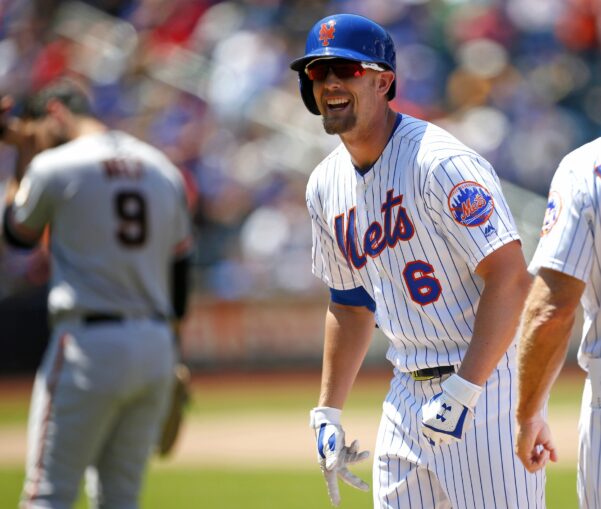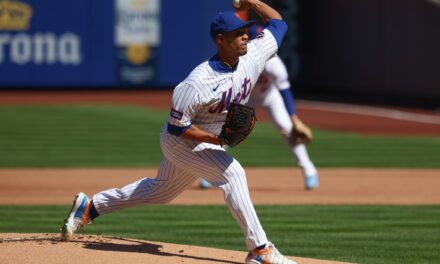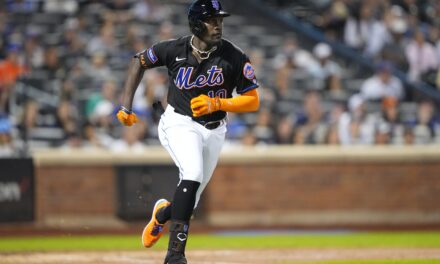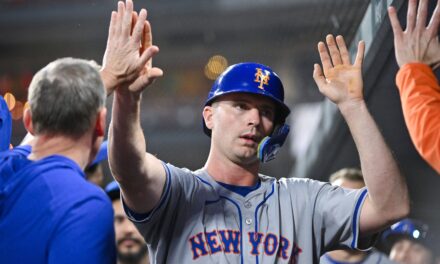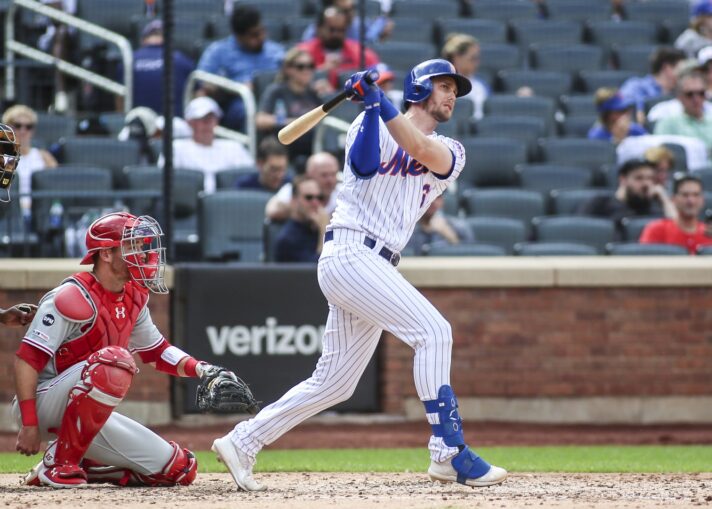
Following a mostly unheralded ascent through the New York Mets’ minor league system, Jeff McNeil has been nothing short of spectacular since making his MLB debut in July 2018.
Now, almost 200 games into his major league career, the man they call Squirrel is on an exciting trajectory that few could have predicted just a couple of years ago.
The .311/.380/.442 line he carried over 428 minor league games after being drafted in the 12th round of the 2013 draft (California State, Long Beach) clearly outshined his injury-plagued 2016 and 2017 seasons (53 games played in total).
Weeks after making his Triple-A debut for the Las Vegas 51’s in June 2018, McNeil spoke about his nose-to-the-grindstone mindset — and the wonderful feeling of being noticed — as a ballplayer to Betsy Helfand, then of the Las Vegas Review-Journal.
“People kind of finally know who I am. I know I haven’t really been a top prospect ever,” he said. “I know I’ve been a good player. I’ve produced every single year, so it’s kind of cool to see fans and everything talk about it but at the end of the day, you’ve just got to keep playing baseball.”
To anyone following closely, it appeared McNeil had the tools necessary to succeed at the highest level. He’d just have to keep raking and wait his turn. Spoiler alert: he continued to rake and didn’t have to wait all that long.
Jeff McNeil made his major league debut on July 26, 2018, picking up an eighth-inning pinch-hit single off Padres right-hander Phil Hughes in a 6-3 Mets victory at Citi Field.
Asdrubal Cabrera was traded to Philadelphia the following day, and McNeil’s opportunity to make an indelible mark in Flushing presented itself. Most casual fans hadn’t heard of him, and maybe that was a good thing — no added pressure — because he took that chance and ran with it.
Over the rest of the 2018 season (248 plate appearances), McNeil hit an astonishing .329/.381/.471 with 11 doubles, six triples, three homers, and 137 wRC+ (ranked 22nd among MLB hitters with at least 240 PA).
Naturally, his stock rose and excitement ran abound among the fan base — a cautious optimism, which for Mets fans is about as good as it gets. The underlying question, of course, was could McNeil duplicate that level of production once MLB pitchers had a book on him?
Yes. Yes, he could.
Despite a nagging hamstring injury that landed him on the injured list twice last season, McNeil took enormous strides forward in his development, securing his place among the game’s most efficient hitters.
McNeil’s offensive statistics improved virtually across the board in 2019, hitting .318/.384/.531 — the 11-point drop in batting average is much more palatable with a 60-point increase in slugging percentage — with 38 doubles, 23 home runs, and 143 wRC+, and his 4.6 fWAR ranked 27th among all qualified MLB hitters.
That appears to be staying power, but there’s another wrinkle to this that should be digested.
Batting average on balls in play is usually a decent indicator of whether a high-level of productivity is feasible long-term or simply a mirage born of luck and/or a hot streak.
BABIP is a stat that, at its core, rewards above-average contact while simultaneously hunting for regression. A great — but not infallible — equalizer, if you will.
Per FanGraphs glossary entry on BABIP:
Over three seasons, if a batter has a .345 BABIP, it is probably safe to say that batter is above average in this aspect of the game and is probably making better contact on average than most.
Over his first 196 MLB games — just shy of a season and a half — Jeff McNeil has a .344 BABIP. He’s still a way off from the “three-season” benchmark set by FanGraphs, but that number is nothing to scoff at, either.
Among MLB batters with over 800 plate appearances since the start of 2018, McNeil’s .344 BABIP ranks 12th in the majors, just ahead of Atlanta’s young wunderkind, Ronald Acuna Jr. That’s special, folks.
And just for context, over the meat-and-potatoes portion of David Wright‘s career (2005 to 2013), The Captain held a .343 BABIP.


